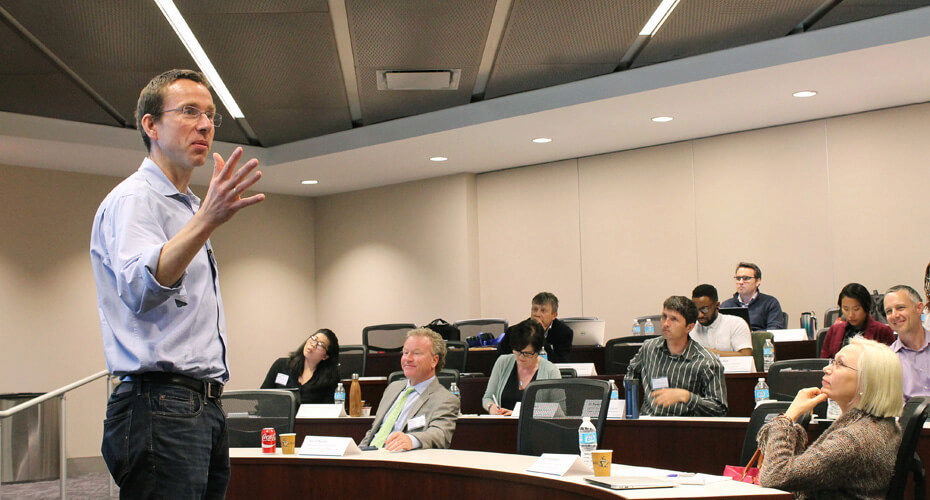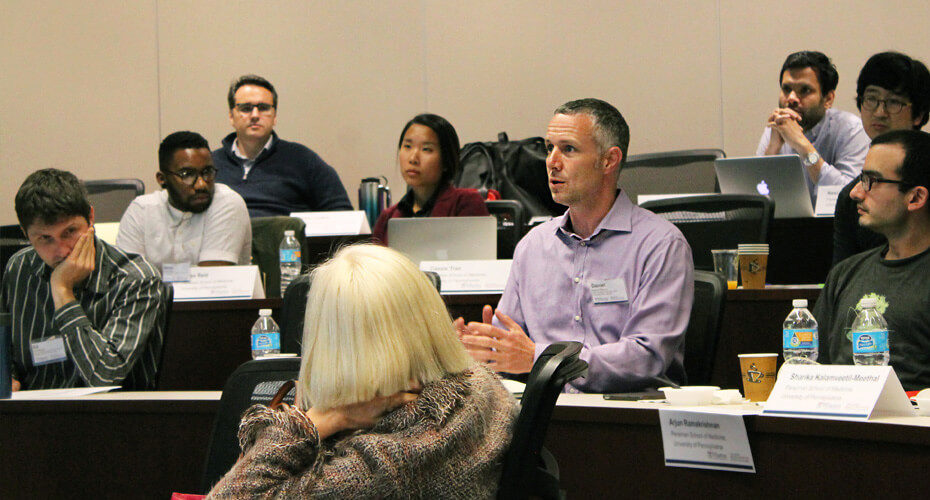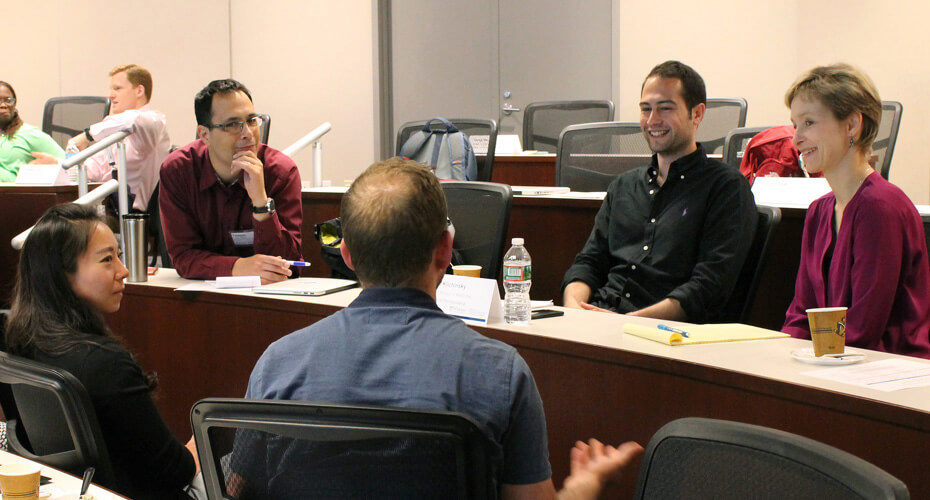How the Inaugural Penn Wharton Commercialization Workshop Was Born
Here at the Mack Institute, we focus on making large, established organizations more innovative. This focus mostly takes the form of programs and events geared towards our external corporate partners, but not all of our attention aims outward. No organization could be nearer and dearer than the one we call home: the very large, very established Penn.
Penn’s President Amy Gutmann has made innovation one of the university’s key strategic goals, with a number of new initiatives designed to encourage discovery and inter-school collaboration. When it comes to fostering student innovation, the university offers a wide array of resources — competitions, clubs and events, and much more. Interest has risen dramatically in for-credit innovation courses across campus. These opportunities, however, are all aimed at students’ specific needs. Looking at the bigger picture of innovation at Penn, Mack Institute Co-director Christian Terwiesch saw an opportunity to do more.

“How do you transform an idea in a lab into a proven technology?”
“Universities are great at inventing new things,” observes Terwiesch. “They also do a good job at commercializing proven technologies. The challenge is the middle part: How do you transform an idea in a lab into a proven technology?”
“Though we teach entrepreneurship and innovation to our students,” he continues, “this content is not easily accessible to faculty, post-docs, scientists, and clinicians. This is notable because it is especially this group, and the research produced by this group, that is a critical resource for creating new ventures or intellectual property on campus.”
Every day, researchers across Penn work to develop new medical devices, novel materials, and breakthrough diagnostic tools. For these inventions to realize their full, life-changing potential, they need to get out into the world as commercial ventures.
Here’s the challenge: Although these scholars and scientists are highly specialized experts in their fields, their backgrounds do not necessarily include, say, a primer in developing a business model or pitching to a venture capitalist. They need a road map in order to commercialize their inventions, and so they need an educational resource geared specifically to them.
“As many scientists know, the route from publishing and patenting to commercialization is a thicket of brambles.”
Terwiesch put together a curriculum and pitched it to Penn’s Office of the Vice Provost for Research. The interactive program, he explained, would provide practical tools to take participants all the way from an idea to its implementation. Each session would address a specific piece of the commercialization journey, and would pull from existing academic courses taught by the most knowledgeable and experienced faculty experts.
The Vice Provost’s office offered their support and reached out to deans across the university, asking them to nominate top researchers working on ideas ripe for commercialization. Finally, during graduation weekend while excited alumni flooded the campus, thirty-three scholars converged for the inaugural Penn Wharton Commercialization Workshop.
Divided into three densely packed days, the workshop spanned topics like product design, ideation, need-finding, financing strategies, intellectual property — to name just a few. Each session featured a faculty member from the Wharton School, Penn Law, or Penn Design. Lunchtime offered more food for thought, with a different guest speaker each day. John Swartley of Penn Center for Innovation spoke about the services that PCI offers Penn researchers, while Mark Allen and Brian Litt discussed their personal experiences commercializing research at Penn. They talked frankly of stumbles, successes, and the challenges of balancing faculty responsibilities with the demands of a new venture.

“As many scientists know, the route from publishing and patenting to commercialization is a thicket of brambles,” said participant Damon Centola, Associate Professor at both Penn Engineering and the Annenberg School for Communication. “The 3-day workshop illuminated a clear path from scientific prototyping to pricing the product for market. I know what to do, and how to do it.”
Michael Klichinsky of the Perelman School of Medicine agreed. “My research focus is cellular immunotherapy for cancer. The workshop was a fantastic introduction into the world of business, innovation, commercialization, and startups – a rare opportunity for biomedical scientists.”
One participant is developing experimental therapeutics for brain cancer. Another works on brain stimulation therapies for patients with memory disorders, and still another is a nutrition scientist developing interventions to prevent childhood obesity. They came from Penn’s arts and sciences, communications, dental, engineering, medical, nursing, and veterinary schools, and from the Children’s Hospital of Pennsylvania. “This is one of the first times where I felt like I was gaining the benefit of the full university at once,” one participant remarked. Such diversity was intentional: one of the workshop’s long-term goals is to build a commercialization-minded community that spans the university.
“Experiencing Penn’s pivot towards a more entrepreneurial culture was truly exhilarating.”
“We got introduced to what we don’t know, what we should ask, who, and when,” said Yoseph Barash, Assistant Professor of Genetics. “Add to that networking with similarly minded people and you get a great recipe for pushing more start-up success stories at Penn.”

“Experiencing Penn’s pivot towards a more entrepreneurial culture was truly exhilarating,” added Thomas Schaer, director of the Penn Vet Translational Research Platform.
To help keep the momentum going, a reunion is in the works for Fall 2016. And although the specific details are not yet in place for the next iteration of the workshop, Terwiesch is excited to again take the lead. “I have been a Wharton professor for 18 years,” he says. “I have taught thousands of students and written dozens of scholarly articles. However, there is nothing more humbling than seeing the research coming out of our medical community on campus. Supporting these efforts through this workshop is a privilege.”
Interested in participating in this workshop in the future? Please contact us directly.



